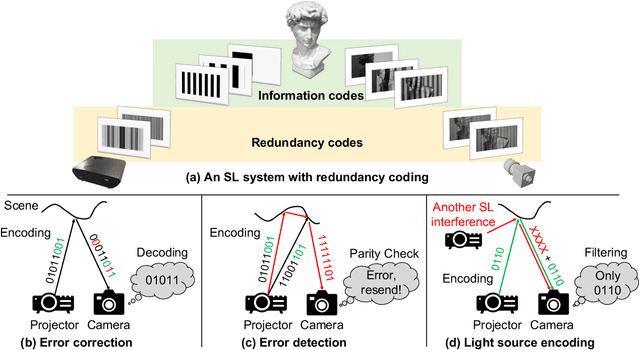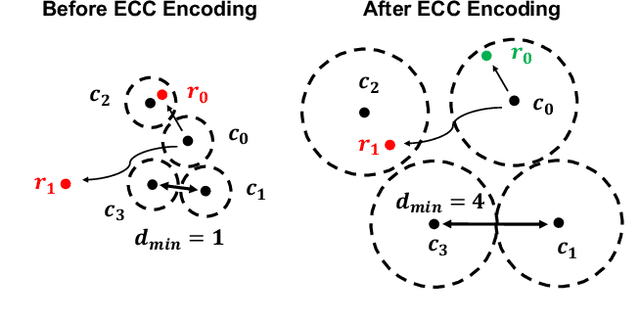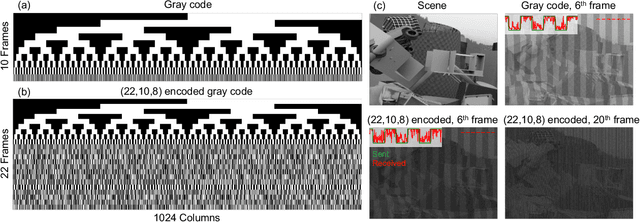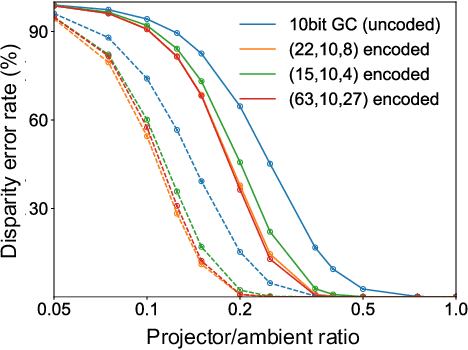Structured Light with Redundancy Codes
Paper and Code
Jun 18, 2022



Structured light (SL) systems acquire high-fidelity 3D geometry with active illumination projection. Conventional systems exhibit challenges when working in environments with strong ambient illumination, global illumination and cross-device interference. This paper proposes a general-purposed technique to improve the robustness of SL by projecting redundant optical signals in addition to the native SL patterns. In this way, projected signals become more distinguishable from errors. Thus the geometry information can be more easily recovered using simple signal processing and the ``coding gain" in performance is obtained. We propose three applications using our redundancy codes: (1) Self error-correction for SL imaging under strong ambient light, (2) Error detection for adaptive reconstruction under global illumination, and (3) Interference filtering with device-specific projection sequence encoding, especially for event camera-based SL and light curtain devices. We systematically analyze the design rules and signal processing algorithms in these applications. Corresponding hardware prototypes are built for evaluations on real-world complex scenes. Experimental results on the synthetic and real data demonstrate the significant performance improvements in SL systems with our redundancy codes.
 Add to Chrome
Add to Chrome Add to Firefox
Add to Firefox Add to Edge
Add to Edge